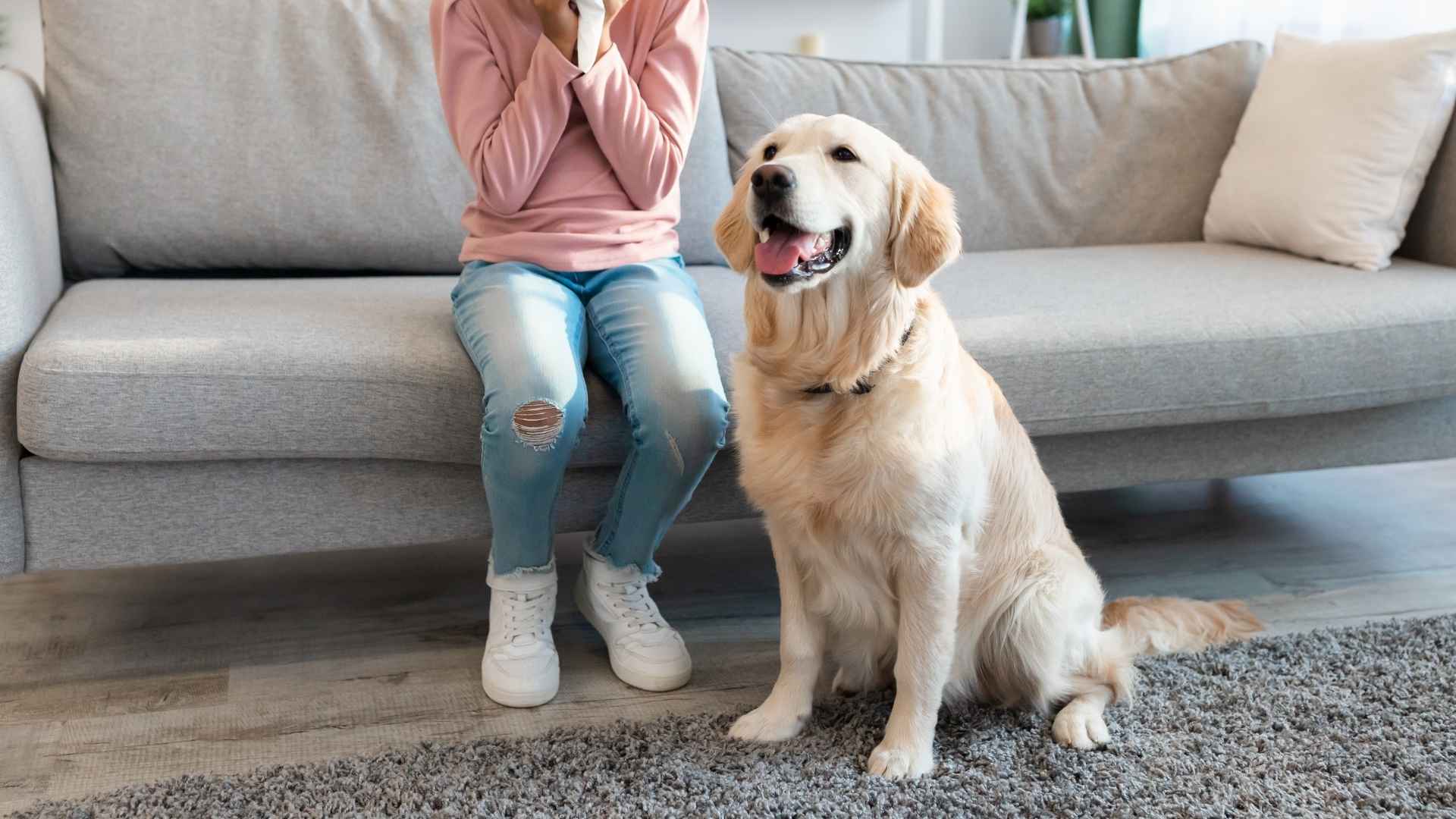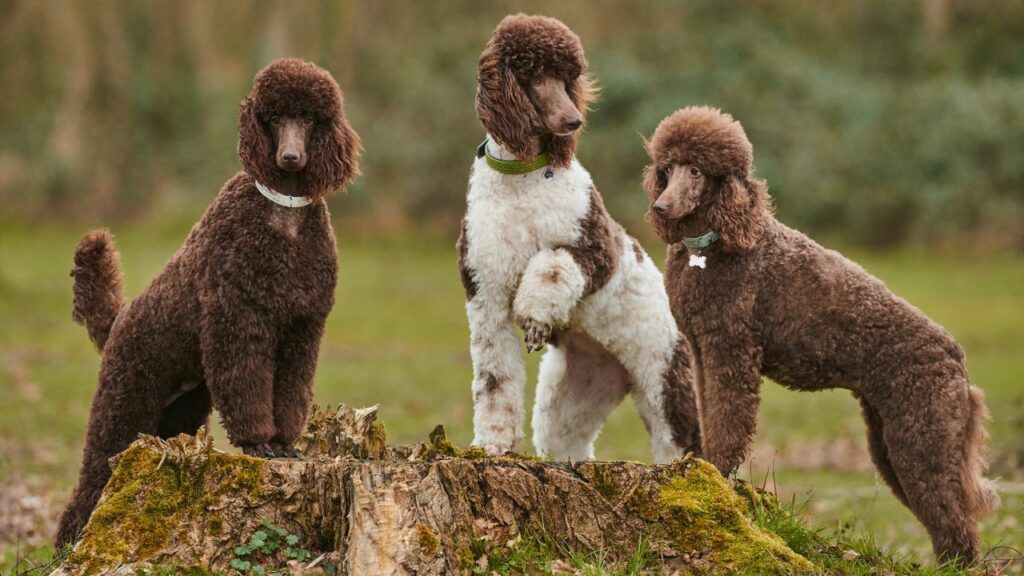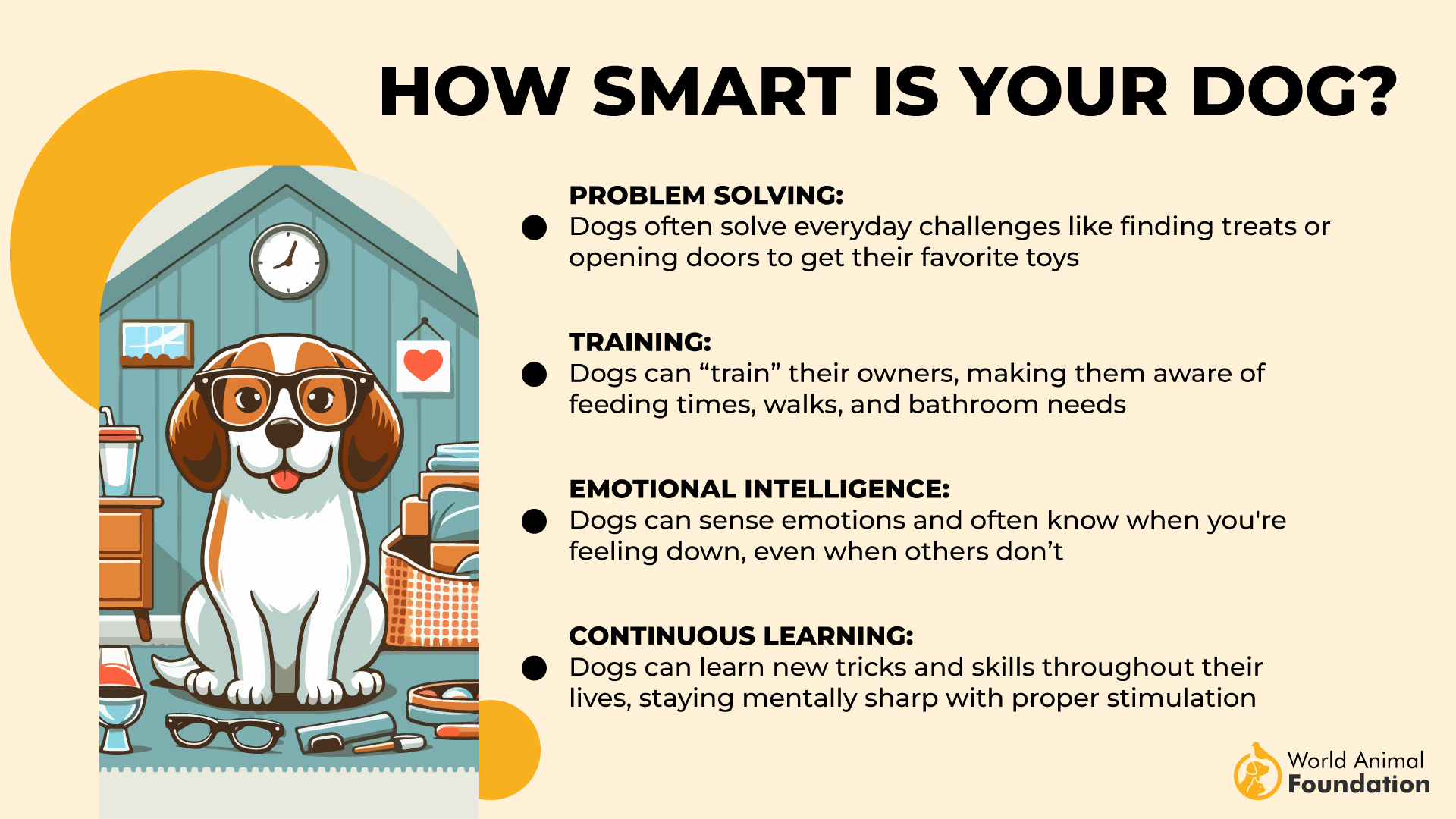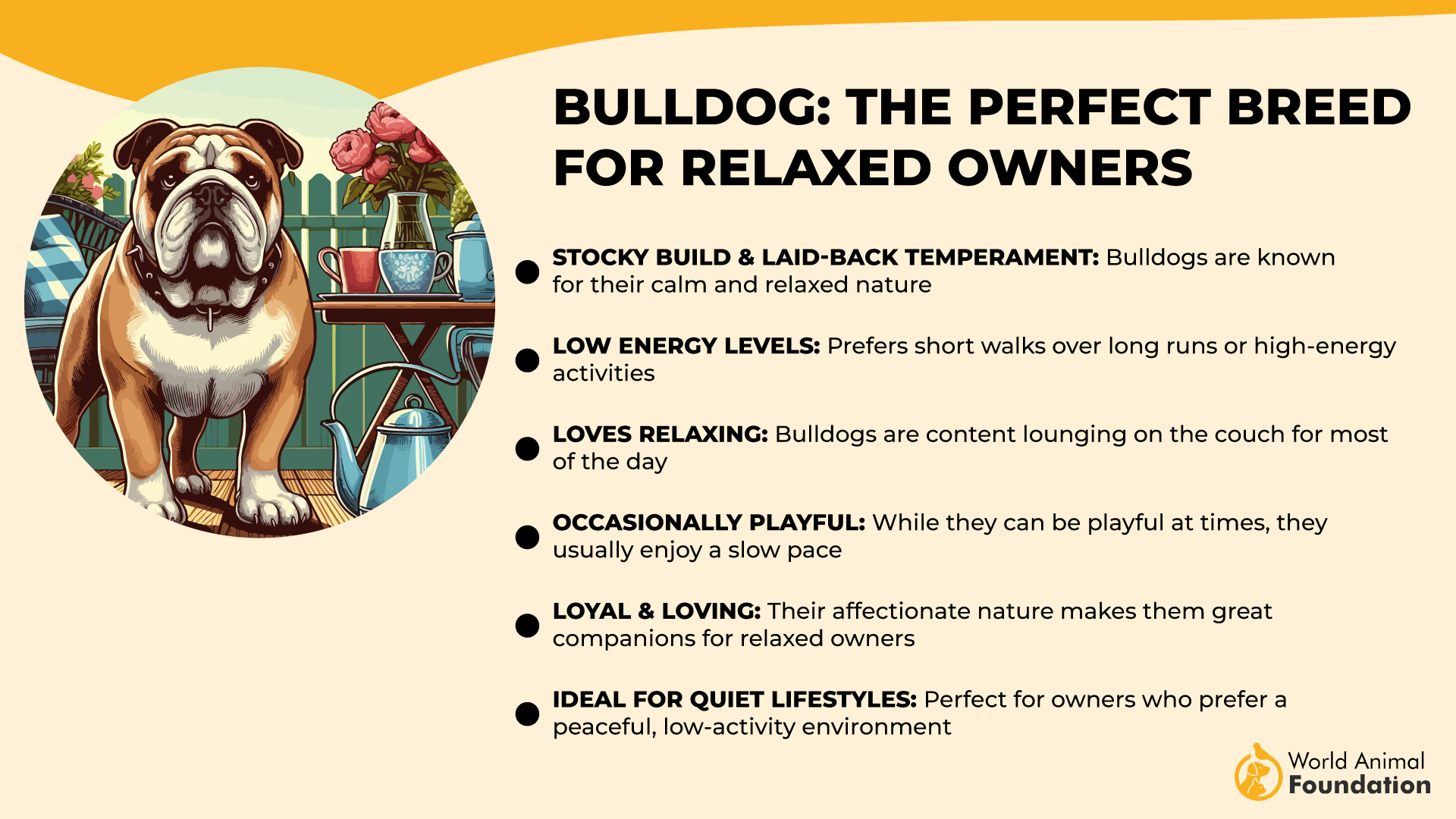Living with Obsessive-Compulsive Disorder (OCD) can present unique challenges, often making it difficult to navigate daily life. However, the unconditional love and unwavering companionship of a dog can offer immense comfort and support. Certain breeds are particularly well-suited to providing the calming presence and understanding that OCD sufferers need. Whether through their affectionate nature, keen intuition, or gentle temperament, these seven dog breeds excel in delivering the emotional support essential for managing anxiety and creating a serene environment. Discover the perfect four-legged partner to help you or your loved ones find tranquility and balance in everyday life.
Obsessive-Compulsive Disorder (OCD) affects millions of people worldwide, significantly impacting their daily lives. In the United States alone, approximately 1 in 40 adults, or 8.2 million people, experience OCD at some point. While managing OCD can be challenging, there’s a silver lining: dogs. These incredible companions can bring comfort, stability, and emotional support to individuals dealing with OCD.
Specially trained “OCD support dogs” or “psychiatric service dogs” go beyond being pets—they’re lifelines. They’re trained to interrupt compulsive behaviors, ease anxiety episodes, and offer unwavering companionship. Whether it’s by providing grounding pressure during a panic attack or retrieving medication when needed, these dogs play a pivotal role in helping people navigate the complexities of OCD. But even untrained dogs with calm, intuitive, and loving personalities can be just as impactful.
Let’s explore seven of the best dog breeds that offer exceptional support for individuals with OCD. These loyal companions are more than pets—they’re life-changing partners.
Best Dog Breeds for OCD
1. Poodles
Poodles may often be seen as pampered pets, but they’re much more than their stylish appearance. Originally bred as working dogs to retrieve waterfowl, Petplan states Poodles bring a unique combination of intelligence, energy, and sensitivity to their role as emotional support animals. Their lively and loving temperament makes them excellent companions, especially for individuals dealing with challenges like obsessive-compulsive disorder (OCD).
Known for their ability to provide comfort, Poodles are great at reducing stress and anxiety. This sense of calm can be especially helpful for people managing OCD, as their presence offers reassurance and complements therapy or medication.
Standard Poodles, in particular, are highly trainable and are often chosen as service dogs for OCD. These dogs can be trained to interrupt compulsive behaviors, helping individuals regain control during stressful moments. Their blend of loyalty and intelligence makes Poodles a comforting and dependable partner for those in need.
2. Cavalier King Charles Spaniels
Cavalier King Charles Spaniels are perfect companions for those seeking a loving and adaptable pet. These charming little dogs fit seamlessly into both active and quiet households, always ready for playtime or a comforting cuddle. Their affectionate personalities make them excellent family pets and a source of emotional support for anyone in need of a mood boost.
For individuals with OCD, Cavaliers can provide invaluable comfort. Their calm demeanor and love for close contact make them ideal emotional support animals, soothing anxiety through snuggles and companionship. These dogs are incredibly in tune with their owners, often picking up on subtle emotional cues and offering reassurance during stressful moments.
However, Chewy notes that their strong bond with their humans means they dislike being left alone for too long, which is something to consider when choosing this devoted and affectionate breed.
3. Labrador Retrievers
Labrador Retrievers, originally developed in Newfoundland, have a rich history of hard work alongside fishermen, rescuing nets, retrieving waterfowl, and even hauling catches to market. Over time, their adaptability and intelligence have made them indispensable in roles like bomb detection for the military and tracking for the police. Simply put, there’s not much a Labrador can’t do.
For individuals with OCD, Labradors can offer both emotional and practical support. Their calm, gentle nature and eagerness to please make them ideal service dogs. Labs can be trained to interrupt compulsive behaviors, provide deep pressure therapy, and offer comfort during anxiety or panic attacks.
Known for their playful spirit, these dogs bring joy and energy into any home while being intelligent and highly trainable. Greencross Vets advises to just keep an eye on their endless appetite—they’ll happily sample anything within reach! Despite their goofy charm, Labs are incredibly intuitive and dedicated companions, making them an excellent choice for anyone in need of support.
4. Golden Retrievers
Golden Retrievers are an excellent choice for individuals seeking OCD support, thanks to their gentle and empathetic nature. Often used as therapy dogs, they excel in providing emotional support and helping manage stress, anxiety, and depression. Known for their loyalty and friendly demeanor, Golden Retrievers can create a calming presence and offer unwavering companionship.
These intelligent dogs can learn more than 160 words and love engaging in tasks, making them easy to train for specialized needs. With proper socialization as puppies, they adapt seamlessly into family life and are especially good with children when treated respectfully.
PDSA adds that Golden Retrievers strike a balance between high energy and calmness, making them suitable for active families or first-time dog owners ready to embrace a larger breed. Their perceptiveness and ability to sense emotions further enhance their role as supportive companions for those with OCD.
5. French Bulldog
French Bulldogs make wonderful companions for individuals with OCD and other mental health conditions due to their affectionate and calming nature. Known for forming strong bonds with their owners, French Bulldogs are loyal, intelligent, and gentle, making them ideal emotional support animals for a variety of households.
This adaptable breed can be trained to perform helpful tasks such as retrieving items, alerting to sounds, or offering comfort during stressful moments. Playful and affectionate, French Bulldogs enjoy both relaxing and engaging in fun activities, making them great companions for children and the elderly alike.
While they are generally accepting of unfamiliar dogs and people, Britannica adds their calm demeanor ensures they remain composed in new situations. Perfect for households seeking a loving and dependable companion, French Bulldogs provide unwavering support and companionship.
6. Goldendoodle
Goldendoodles are excellent companions for individuals managing OCD, thanks to their naturally calm and affectionate temperament. Their loving nature provides comfort and helps reduce feelings of anxiety or stress, making them ideal emotional support dogs. With proper training, Goldendoodles can learn specific tasks to assist with OCD-related challenges, such as interrupting repetitive behaviors or providing grounding cues.
Known for their intelligence and trainability, Goldendoodles excel at tasks like alerting to triggers or offering deep pressure therapy. Their gentle and patient demeanor is especially soothing during stressful moments, making them a reliable source of comfort.
Additionally, Goldendoodles are affectionate, playful, and wonderful with children and other pets, making them not only great family companions but also a suitable choice for first-time dog owners.
7. Doberman Pinscher
Dobermans are highly intelligent and trainable, making them strong candidates for OCD support roles when properly evaluated and trained. Their eagerness to learn and ability to adapt allow them to perform complex tasks that can assist individuals in managing OCD symptoms.
Tasks such as interrupting compulsive behaviors, reminding owners to take medication, or offering grounding techniques are well within their skill set with appropriate guidance from a professional trainer.
Known for their deep emotional connection with their owners, Dobermans can be particularly sensitive to changes in mood or anxiety levels, providing comfort and reassurance during stressful times. Their loyal and protective nature fosters a sense of security, which can be incredibly helpful for individuals dealing with OCD, PTSD, or similar conditions. However, due to their large size and strength, proper training and handling are essential to ensure they remain gentle and manageable companions.
Conclusion
Dogs can provide unparalleled support for individuals managing OCD and other mental health issues. From their ability to perform tasks that interrupt compulsive behaviors to offering comfort during an anxiety attack, these remarkable animals often become invaluable companions. Psychiatric service animals, including breeds like Goldendoodles or German Shepherds, undergo specialized training through a service dog organization to ensure they can assist with everyday life challenges. Their calming presence and ability to offer mental stimulation can significantly alleviate mental health disorders.
It’s essential to work with a licensed mental health professional when considering a trained service dog for OCD or anxiety-related conditions. Service animals provide more than companionship; they are assistance animals capable of transforming lives by offering emotional balance and structure. Regular physical exercise and bonding time with your service dog help strengthen the connection, creating a supportive relationship that helps navigate the complexities of mental health challenges like post-traumatic stress disorder or obsessive-compulsive disorder.
In conclusion, selecting the right dog breed can significantly enhance the quality of life for individuals with Obsessive-Compulsive Disorder (OCD) by providing comfort, companionship, and a calming presence. Breeds known for their affectionate nature, intelligence, and empathy, such as Golden Retrievers, Labrador Retrievers, and Cavalier King Charles Spaniels, are particularly well-suited for offering emotional support. Their intuitive understanding of human emotions helps them respond effectively to the needs of OCD sufferers, promoting a sense of security and well-being. Ultimately, these loyal companions can play a crucial role in managing stress and fostering a more balanced lifestyle.










